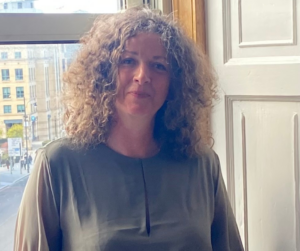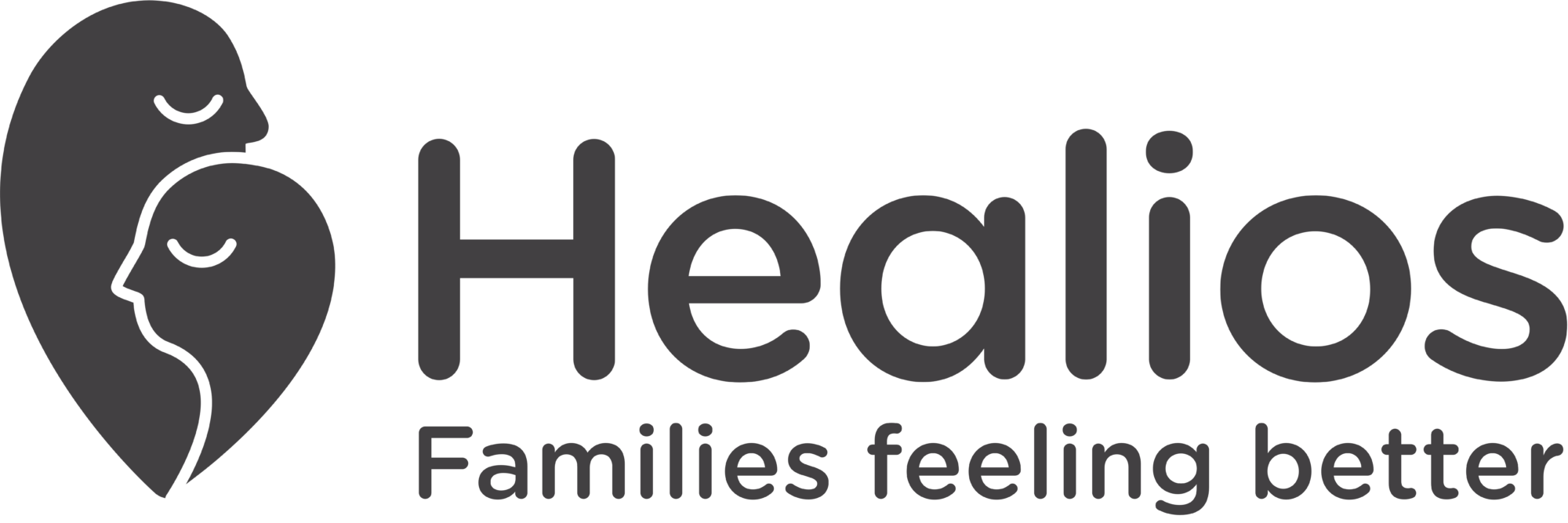Mental Health Awareness Week takes place between 13-19 May 2024 and this year the theme is ‘Movement: Moving more for our mental health’.
Lucy Harness has been with Healios for four years working as a Specialist Neurodevelopmental Practitioner, currently supporting patients through our private intermediary Melios.
As an Occupational Therapist for over 30 years Lucy is passionate about the importance of movement for supporting good mental health.
Here she talks about her career, the benefits she has seen first hand in her patients of getting active and how yoga has become one of her life’s passions…

Drawn to mental health
Throughout Lucy’s career she has harnessed her skills as an Occupational Therapist to support people with their mental health, working mainly in secure settings, in the community and with both children and adults.
She said she was always drawn to working in mental health and latterly in neurodevelopment at Healios.
Lucy explains: “I have an aunt who is autistic and in her nineties now. She was a big part of my family especially when I was growing up. I have lots of fond memories but was also aware of the challenges at the time (the ongoing challenges are autism and elderly care).
“I think the transition into mental health as a career just felt quite natural and didn’t feel like a big thing.”
A rewarding career
Across her 30 years working in different settings and across different age groups, Lucy has always been inspired by seeing the difference her work makes to the people she cares for.
She says: “Seeing people improve their mental health through physical activity, especially doing things they enjoy and even rekindling old hobbies is so rewarding. I’ve always enjoyed doing practical activities with client’s such as gardening, woodwork or crafts and outdoor play with children.
“The self-worth and sense of achievement that people get from doing these activities is why I’ve enjoyed my career for so long.”
The evidence is out there
The Mental Health Foundation is looking to help people to find moments for movement in their daily routines during Mental Health Awareness Week. Whether going for a walk in their neighbourhood, putting on their favourite music and dancing around the living room, chair exercises when watching television – anything that encourages people to get moving.
Unsurprisingly Lucy is a huge advocate for the benefits of movement and said the evidence is now there to support its importance to our mental health.
“One of the key things is the physiological benefits of moving your body,” Lucy says. “It impacts our brain, reduces risk of disease, strengthens bones and muscles and can really help with emotion regulation.
“I love the growing research on how we can tap into the lower part of our brain, the area that helps us to regulate, particularly through repetitive movement.
“Activity is good for your digestive system which in turn is linked to mood and health which we now know as the enteric nervous system.
“I love that activity can regulate our fight or flight response. So that can be bouncing a ball, walking, even sewing or knitting – any of those kinds of things as long as there’s a rhythmic pace to it.
“I like to walk daily if I can and find that 30 minutes a day can shift my mood. I find myself being able to focus on my work for longer after a walk and I can shift some of those negative thoughts that often find their way into my mind.”
Yoga is a way of life
Being an Occupational Therapist is just one part of Lucy’s career as she has also spent over 30 years teaching yoga.
Yoga has been a huge part of her life, as has mindfulness, and she has even passed on her knowledge to fellow colleagues at Healios by delivering remote yoga and mindfulness sessions as part of our wellbeing offer to staff.
Talking about how she discovered yoga Lucy explains: “I was 20 and I was experiencing back pain and I just thought I’m too young to be having these issues so I found a yoga class and was hooked.
“I went with a physical complaint but the psychological benefits far outweighed the physical benefits. I quickly realised yoga wasn’t just about movement but it was about breath and movement and integrating the two. This bringing balance to the body will subsequently reflect in the mind.
“My own yoga practice and teachings has changed over the years, from a strong Iyengar practice to a more subtle floor based sensory awareness practice which is much kinder to my ageing body. Integrating a mindfulness practice has been really helpful in moving through the different life stages.
“Yoga practice is fluid, movement is fluid, just as life is.”
A huge help for neurodiverse people
Yoga and mindfulness have benefited Lucy both mentally and physically and one impact of doing it has been to help her concentrate and sit still for longer, something she says can be enormously helpful for the neurodiverse people she sees through her role at Melios.
Lucy says: “We now know more about neuroplasticity and how our brain has the ability to adapt, learn and grow. Mindfulness can help us to reduce stress, and manage our emotions but mindfulness isn’t just about sitting and meditating, it’s about moving, becoming aware and connecting with others.
“Working with neurodiverse children and using movement as a therapy has been immensely rewarding particularly when learning to manage emotions. It also helps children connect with their carers or peers and it’s easier to learn new skills when the person is regulated and enjoying themselves.
“Newly diagnosed adults with ADHD have shared with me how beneficial mindfulness and yoga practices have been for them. It has made them aware of those negative thoughts patterns that have impacted their physical body and can now shift to a positive thought process.
“I would recommend doing a yoga practice or movement that suits your own diverse needs. This can be a fast dynamic practice or a slower paced practice and either are fantastic. However, it can also be walking, dancing, hiking, running or playing a sport. As long as you’re moving and enjoying the experience you’ll feel the benefits.”
You can find some useful tips for getting moving this Mental Health Awareness Week from the Mental Health Foundation here.
Explore the comprehensive resources and insights Healios offers on neurodivergence and mental health. For personalised support or inquiries, connect with us here.
Find out more about our private neurodevelopmental services at Melios here.
